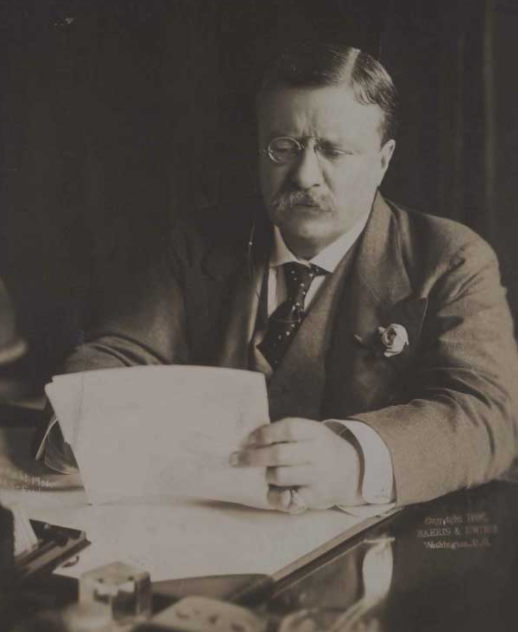Pure Food and Drug Act Passed: On This Day, 1906
Posted by Anna Khomina on Friday, 06/30/2017
 On June 30, 1906, President Theodore Roosevelt signed the Pure Food and Drug Act and Meat Inspection Act, marking an achievement in federal regulation of the food industry. The catalyst for these acts was Upton Sinclair’s best-selling book, published just six months prior, The Jungle. The book chronicles a fictional Lithuanian immigrant family’s attempts to earn a living amidst the exploitative labor practices of the Chicago meatpacking industry. Sinclair hoped that getting readers to sympathize with the difficult lives of the laboring classes would increase interest in socialism. But it was the graphic depictions of the unsanitary conditions and the dubious origin of the meat, which Sinclair spent months undercover researching, that grabbed attention instead, and sparking an outcry for food industry reform.
On June 30, 1906, President Theodore Roosevelt signed the Pure Food and Drug Act and Meat Inspection Act, marking an achievement in federal regulation of the food industry. The catalyst for these acts was Upton Sinclair’s best-selling book, published just six months prior, The Jungle. The book chronicles a fictional Lithuanian immigrant family’s attempts to earn a living amidst the exploitative labor practices of the Chicago meatpacking industry. Sinclair hoped that getting readers to sympathize with the difficult lives of the laboring classes would increase interest in socialism. But it was the graphic depictions of the unsanitary conditions and the dubious origin of the meat, which Sinclair spent months undercover researching, that grabbed attention instead, and sparking an outcry for food industry reform.
Congress had already been considering a food purity act for some time, but action had been stalled by objections from conservative congressmen and food-processing companies. But the public outcry stirred up by The Jungle led President Roosevelt to start an investigation of the meatpacking industry, and hastened federal action to regulate the food industry. While Sinclair’s work failed to turn the public toward socialism, it is an example of the progressive reforms that were accomplished through the "muckraking" exposés of the era.